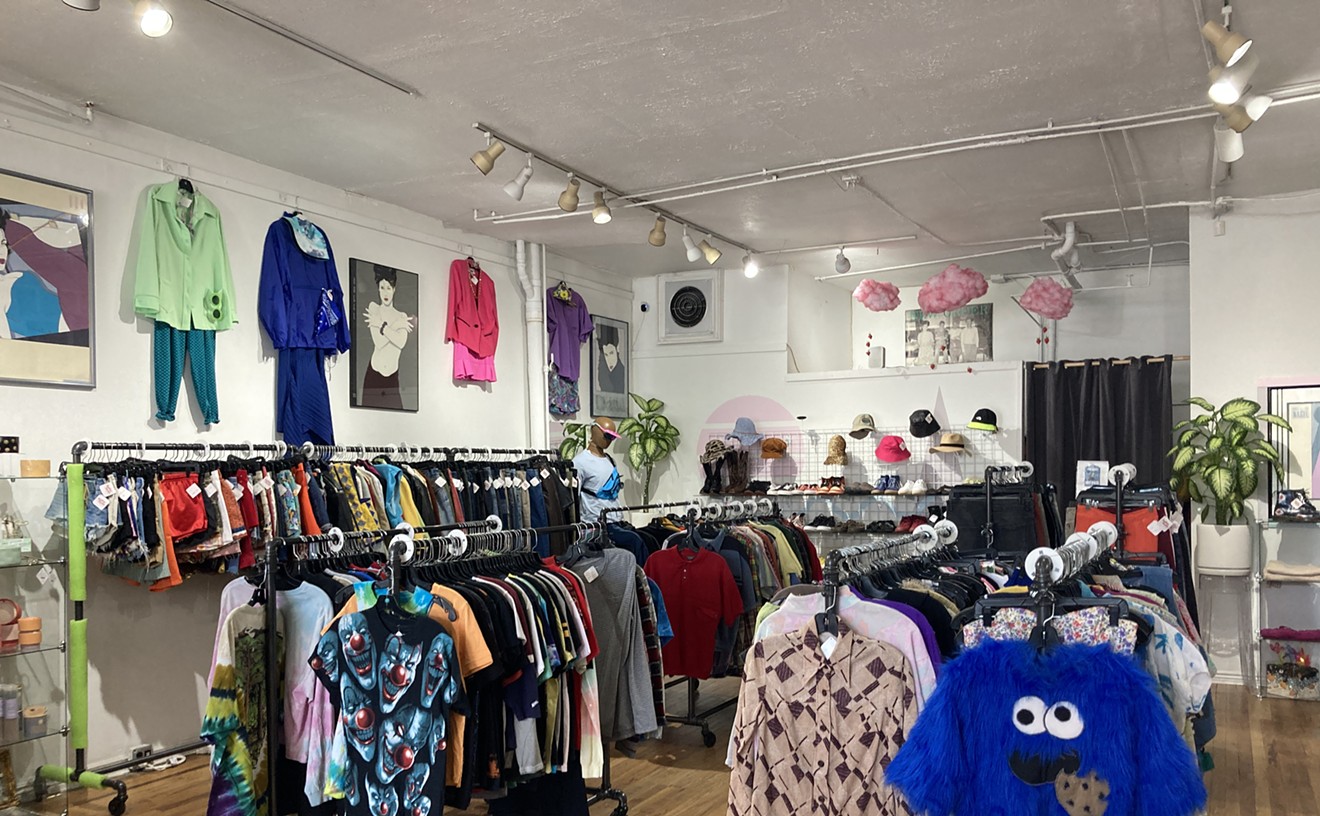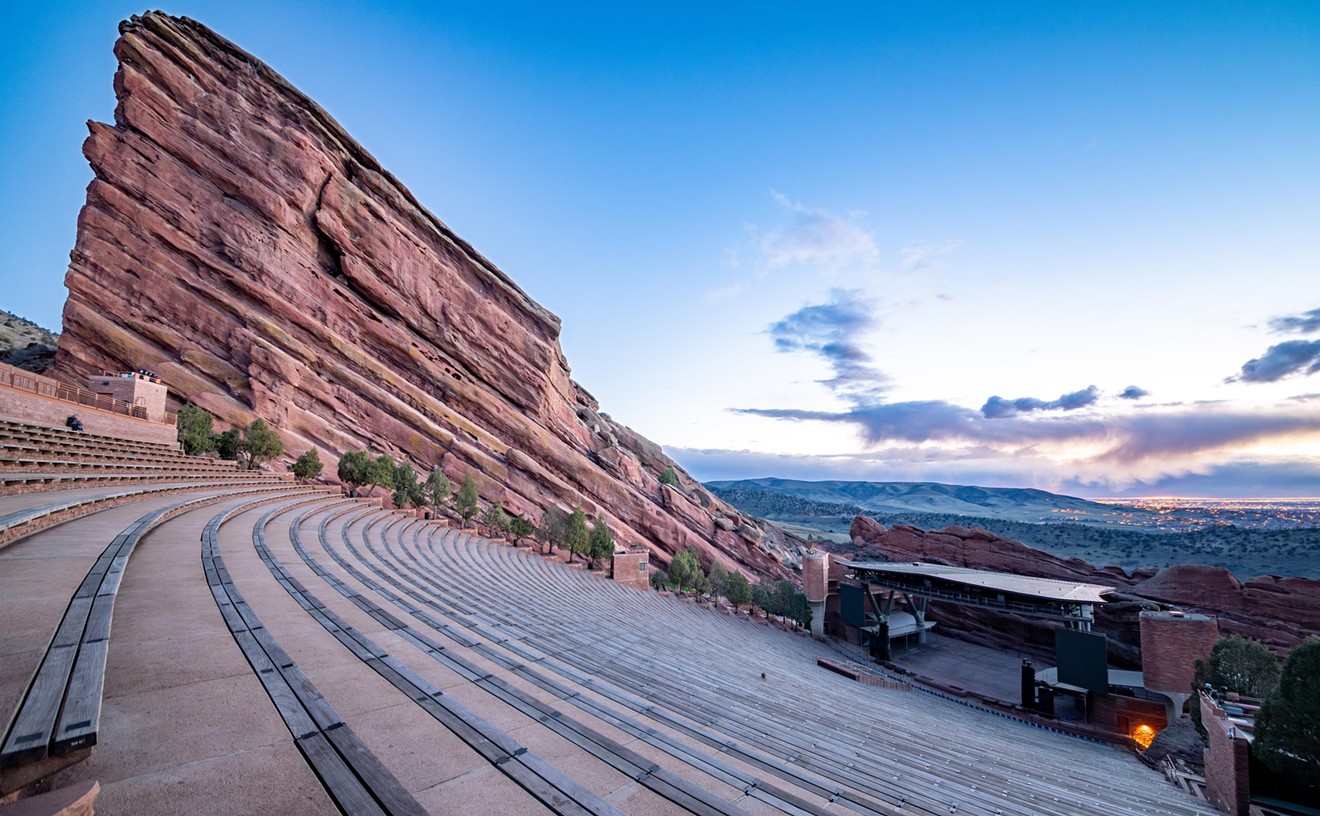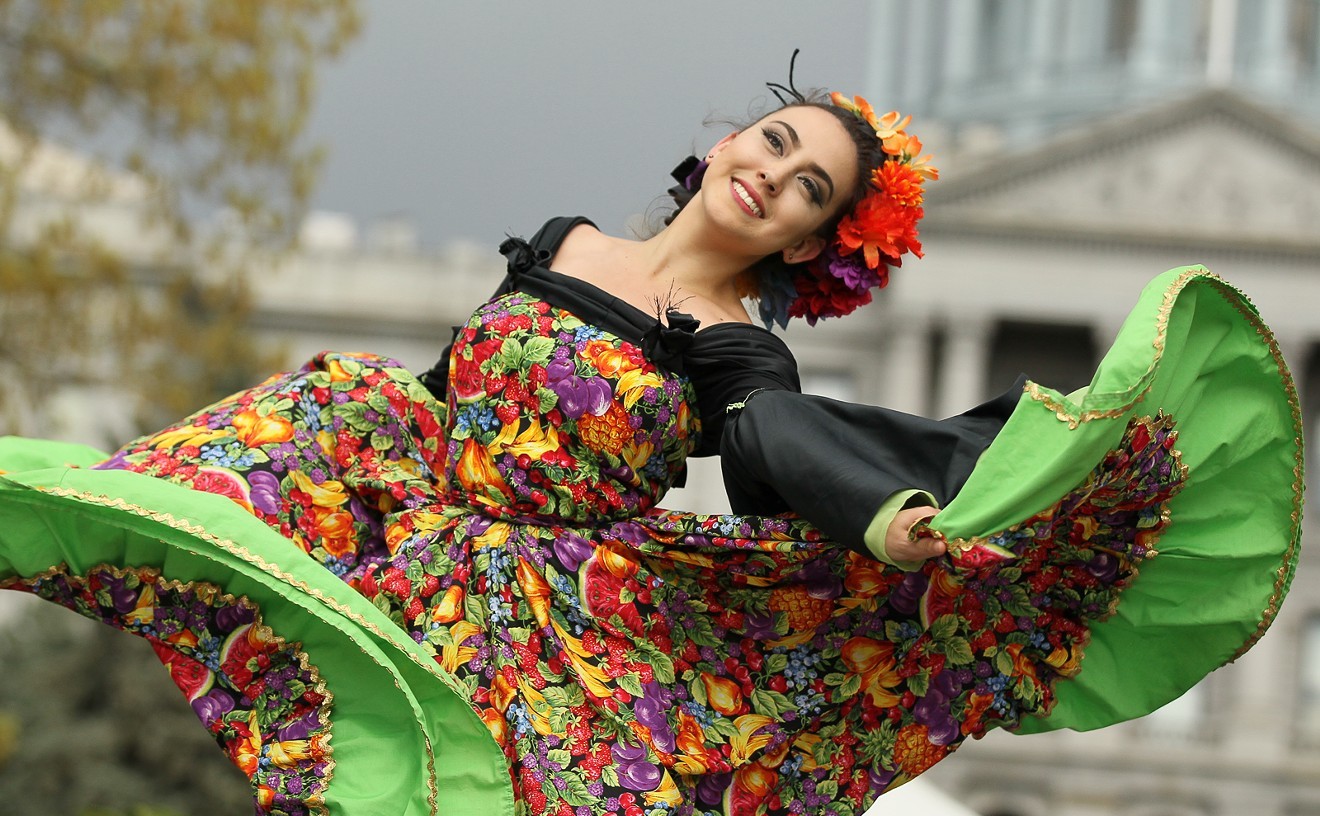David Sedaris stands out as the peacock in this grove of turkeys. While he may come from an upper-middle-class background, many of his stories chronicle his time as a college drop-out, trying to develop an artistic identity while working as a dishwasher, apple-picker, house-cleaner or, in the case of The SantaLand Diaries -- the story that catapulted him into the NPR dynasty and the focus of a free program at noon today at the LoDo Tattered Cover -- an elf working at Macy's SantaLand during the holiday season. He may be an intellectual gay liberal, but as a humorist Sedaris is unendingly dark, sarcastic and accessible -- a combination only truly earned through years as a blue-collar worker.
See also: Ron White on gay marriage, marijuana and opening acts -- including Josh Blue
I would never say you have to have been poor to be funny. Adam Cayton-Holland has a whole catalogue of A-list material about living on the shinier side of the tracks. But I'm curious why, if you have a labor-employment history and are a standup comic, you're probably a conservative family man who has done an USO tour at some point -- but if you're a writer with a background in factories or dishwashing equipment, you lean toward the explosive, hard-living spectrum of drink and loner travel.
Not that everyone who works a blue-collar job turns into a comedian, though a surprising number of them do. I've worked over 45 jobs in my life, most of them some form of labor, and I'm used to huddling outside in the cold with a cigarette and coffee (if it's a factory; if it's a restaurant, then a cigarette and beer) with a half dozen co-workers, cracking jokes about your shitty job and the ridiculous people you're forced to contend with. The humiliation is a bonding experience, and humor becomes our therapy.
But if you're snob who believes you were born for greater things (a sin I have been guilty of), then you come home and type out funny stories about your shitty job. "I must admit, I had high hopes for moving to New York," Sedaris writes in SantaLand Diaries, just after accepting his job as a pointy-eared helper in a velvet green suit. "In my imagination, I'd go right from Penn Station to the offices of One Life to Live. In my imagination I'd go out for drinks with Chord Roberts and Victoria Buchanan -- the show's biggest stars. We'd sit at a plush booth in a cocktail lounge, they'd lift their frosty glasses and say, 'a toast to David Sedaris, the best writer this show ever had!'"
Like Sedaris, Charles Bukowski owes half his career to churning out stories about labor work -- turning the uninspiring droll of unskilled tasks into hilarious sketch routines. Both of these writers learned to master the art of economic, accessible writing, knowing how to arrest an audience with a poisonous one-liner without ever becoming hysterical and showy. Most writers never learn this; they get too lost in their own minds to ever know how to communicate a joke. A blue-collar worker is forced to bond with those around him. Free of the security tht professional employment affords, there's no room for isolation. Telling a joke to the guy next to you becomes a survival tool for mental health.
Blue-collar standup comedians like Adam Carolla or John Caparulo were most likely the social guys of the crew during their days of construction or golf-course groundskeeping, respectively. I think both of them are great comics (despite Carolla once calling me an asshole in front of 12,000 people), but that's probably because I was steeped in their brand of humor years before entering my urban snob phase as a comedy critic.
While David Sedaris and John Caparulo may have completely different fanbases, their differences are mostly cultural. Both have that unique gift for the punchy one-liner that is vividly weird, but somehow universally understandable. Like I said, it's not essential to have worked a bottom-rung job to develop this skill, but you can always see a witty bitterness in those who learned it in the trenches of disrespected employment. Some of them were the social web of the workplace and went on to be standup comics, others were the eye-rolling upstarts who cowardly typed their jokes in secret and sold them as stories. Yet both know how to communicate to average people, building camaraderie around the shared misery of below-average employment.
Denver Center Attractions will present Boulder Ensemble Theatre Company's The SantaLand Diaries at the Garner Galleria Theatre November 29 through December 24; tickets are on sale now at denvercenter.org. Star Matt Zambrano, a Denver native, will be talking about the show at noon today with John Moore at Tattered Cover LoDo, 1628 16th Street Mall; that Page to Stage program is free. David Sedaris himself will be in town on November 18 for a show at the Paramount that sold out in record time; a second show was added on November 24. You can try getting tickets here.
For more comedy commentary, follow me on Twitter at @JosiahMHesse.
Follow @WestwordCulture










